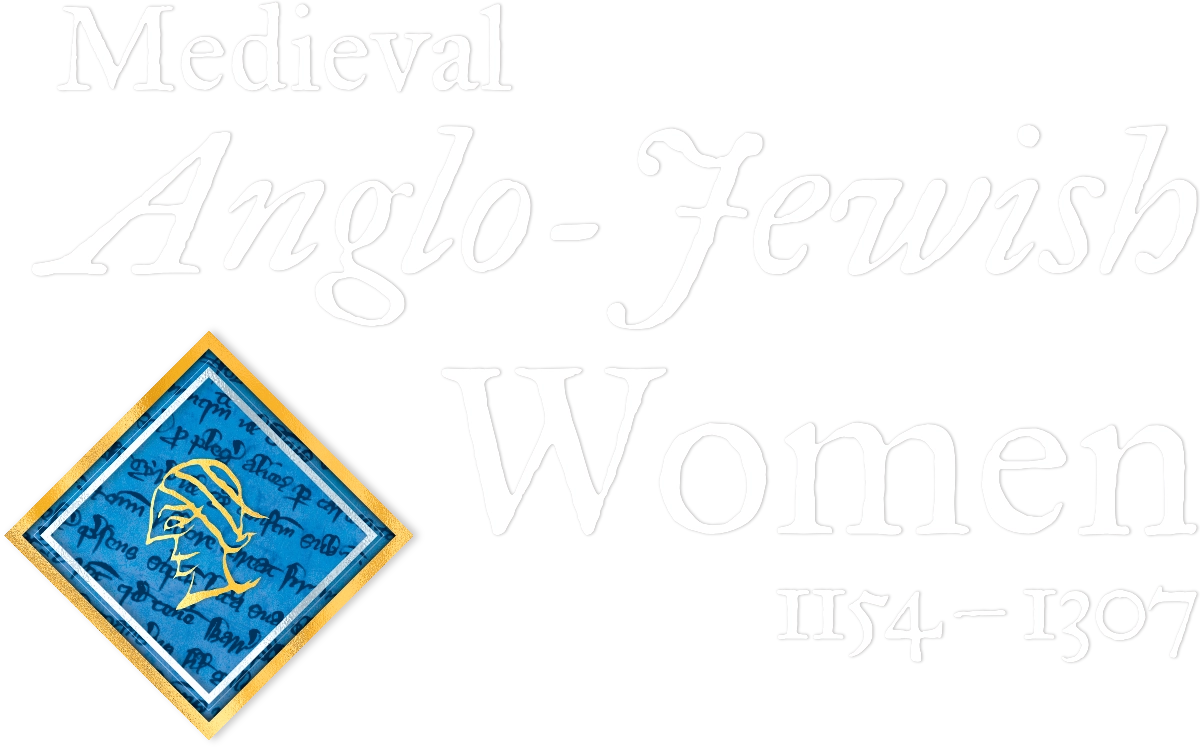Pya wife of Benedict de Cauz
Referred to in records as: “Pya”, “Pye”.
Brief biography

Pya de Caus (or Cauz) is known to us mainly through repeated records of her
dispossession. She first appears in records alongside her husband Benedict in 1271, when
their homes in the parish of St Aldates in Oxford were granted to Jacob of Oxford, the
son of Master Moses of London, along with the Oxford properties of three Christian men
and eight other Jews. By the time of the 1290 expulsion, nonetheless, Pya’s property
was
still called hers (as was the case for several Jews listed in the 1271 grant), and
it is
likely that she and her husband rented from Jacob of Oxford throughout the last three
decades of medieval English Jewry. In the spring of 1281, Benedict was named, along
with
other Oxford Jews—including the husband of the convert Floria Tapay—in a writ of
trespass brought by Alan de Shescote, a monk at Bruern Abbey in West Oxfordshire,
who
claimed that Benedict and others had broken the king’s peace by stealing certain
documents and goods from him.
By the time of the 1290 expulsion, however, Benedict was
dead, and Pya was among the
exiled.Her homes, like most of the Jewish property in Oxford, split between St Aldates and St Martins parishes, was given by King Edward I to William Burnell, Dean of Wells Cathedral (and likely the illegitimate son of Chancellor and Bishop Robert Burnell, for whose estate he was an executor). Among the properties granted were those of Mildegod of Oxford, Margalicia widow of Vives of Gloucester, Sarra widow of Benedict L’Eveske, and Avigaye daughter of Benedict of Winchester, as well as the Oxford synagogue. In 1292, Burnell in turn granted the St Aldates properties, including Pya’s and Mildegod’s, to the Hospital of St John (now the site of Magdalen College). In 1297, following up on his post-expulsion grant, Edward I acquitted Burnell of any debts or arrears on bonds related to the Oxford Jewry. What we can glean about Pya, in other words, is how dispossession, expulsion, and debt forgiveness enabled the establishment of Christian institutions on Jewish land.
Further reading
- Hillaby, J. and C. Hillaby, The Palgrave Dictionary of Medieval Anglo-Jewish History. London: Palgrave. 2015, pp. 295–301..
Dates mentioned in records
1271–1297
Locations
Berkshire, London, Oxfordshire

